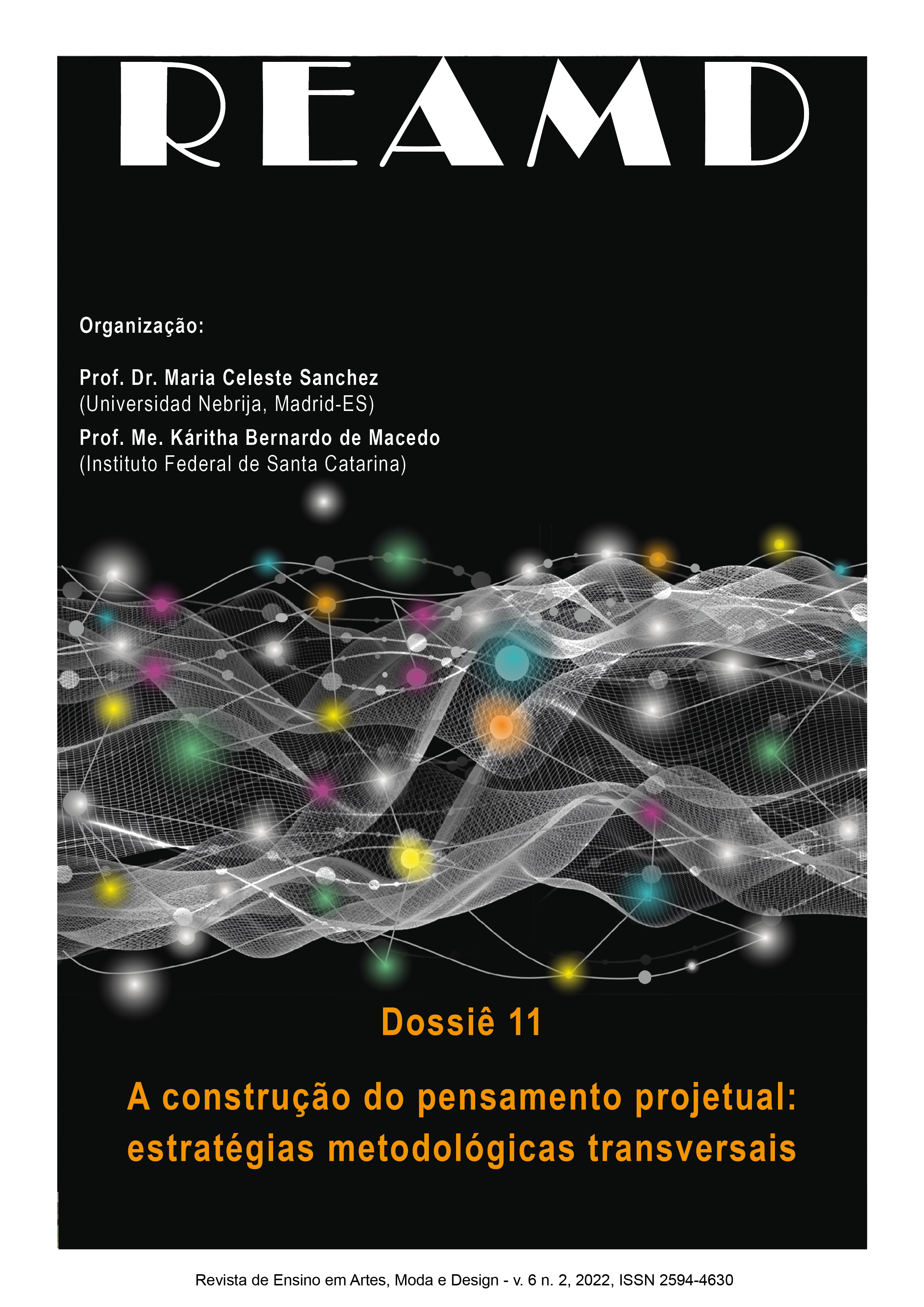Fashion and decoloniality: crossroads in the global South
DOI:
https://doi.org/10.5965/25944630622022e0146Keywords:
fashion theory, decoloniality, global south crossroadAbstract
The article aims to introduce a theoretical debate about the ideas that dialogue with the decolonial perspective applied to fashion, as well as to bring the theoretical developments listed in the context of the global South. For this purpose, it employs a group of fashion scholars who have, since the mid-1990s, been examining fashion key concepts, specifically the Fashion concept itself. Thus, the article inquiries the fashion authorization system and the belief of Fashion is a exclusively Western manifestation. The review is directed to the colonial matrix of thought that produces and reproduces a binary division between societies, which are subjected to the classification that opposes them between “with fashion” or “non fashion”.
Downloads
References
ALMANN, Jean. Introduction. In.: ALMANN, Jean. Fashioning Africa: Power and the Politics of Dress. Bloomington, IN. Indiana Press. 2004;
BARTHES, Roland. Sistema da moda. São Paulo: Editora da Universidade de São Paulo, 1979;
BECKER, Howard. Mundos da Arte. Lisboa: Livros Horizontes, 2010;
BELFANTI, Carlo Marco. Histoire culturelle de la mode. Paris: IFM, 2014.
CRAIK, Jennifer. The Face of Fashion: Cultural Studies in Fashion. Londres: Routledge, 2003;
DIAS, Jamille P. e CAMARGO, Raquel. Nota da tradução. In.: VERGÈS, Françoise. Um feminismo decolonial. São Paulo: Ubu Editora, 2020;
FANON, Frantz. Pele Negra, máscaras brancas. Salvador: EDUFBA, 2008;
KAWAMURA, Yuniya. Fashion-logy: An Introduction to Fashion Studies (Dress, Body, Culture). Londres: Berg Publisher. 2005; MAUSS, Marcel. As técnicas do Corpo. In: Sociologia e Antropologia. São Paulo: Cosac Naify, 2003;
NIESSEN, Sandra. Afterword: re-orienting fashion theory. In.: NIESSEN, Sandra, LESHKOWICH, Ann Marie et all. Re-Orienting Fashion: The Globalization of Asian Dress. Londres: Berg Publishers, 2003;
ROVINE, Victoria. Viewing Africa through Fashion. In.: Fashion Theory, V. 13, I. 2, June 2002. Oxford: Berg, 2009;
SANT’ANNA, Mara Rúbia. Teoria da moda: sociedade, imagem e consumo. 2ª edição. São Paulo: Estação das Letras e Cores, 2016;
SIMAS, Luiz Antonio; RUFINO, Luiz. Fogo no mato: a ciência encantada das Macumbas. Rio de Janeiro: Mórula Editoral, 2018;
RAINHO, Maria do Carmo. A cidade e a moda. Brasília: Editora UnB, 2002;
SANTOS, Heloisa H. O. Uma análise teórico-política decolonial sobre o conceito de moda e seus usos. Modapalavra e-periódico. v. 13 n. 28 (2020): Variata. Disponível em: https://www.revistas.udesc.br/index.php/modapalavra/article/view/15948>.Acesso em: 31 jan. 2021;
VERGÈS, Françoise. Um feminismo decolonial. São Paulo: Ubu Editora, 2020. Edição do Kindle;
VOLPI, Maria Cristina. Estilo urbano: modos de vestir na primeira metade do século XX no Rio de Janeiro. São Paulo: Estação das Letras e Cores, 2018;
LIPOVETSKY, Gilles. O império do efêmero: a moda e seu destino nas sociedades modernas. São Paulo: Companhia das Letras, 1989.
Published
How to Cite
Issue
Section
License
Copyright (c) 2022 Carolina Casarin, João Dalla Rosa Júnior, Heloisa Santos, Carla Aparecida Costa, Michelle Medrado

This work is licensed under a Creative Commons Attribution 4.0 International License.
a. Authors retain copyright and grant the journal the right of first publication, with work simultaneously licensed under the Creative Commons Attribution 4.0 International License, which allows the sharing of work with acknowledgment of authorship and initial publication in this journal.
b. Plagiarism, in all its forms, constitutes unethical publication behavior and is unacceptable. This magazine uses iThenticate similarity control software.






